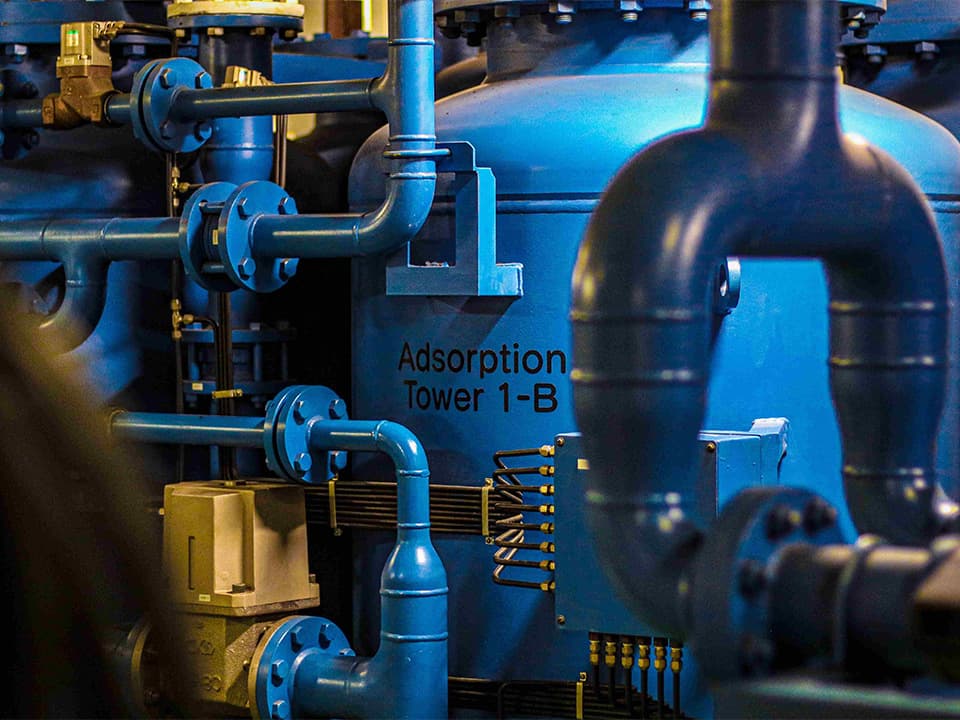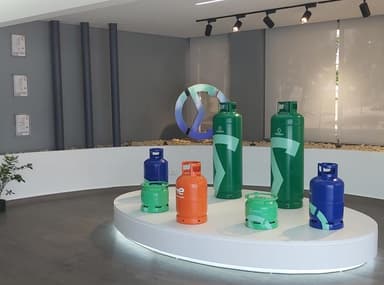Industrial Advantages: LPG as an Ideal Power Solution for Manufacturing and Heavy-Machinery Applications

The manufacturing and heavy machinery sectors continually seek strategies to improve operational efficiency, reduce costs, and decrease environmental impact. In this pursuit, Liquefied Petroleum Gas (LPG) emerges as an attractive fuel alternative, offering numerous incentives for industrial applications. From heating and power generation to forklifts and heavy machinery, LPG has proven its potential to provide clean, cost-effective, and sustainable energy solutions to a range of industries.
As one of the largest LPG cylinder manufacturers in the Middle East and the African Continent, Sigma Cylinders is poised to address the evolving demands of businesses seeking reliable, high-performance LPG solutions. Committed to producing top-quality, durable, and innovative LPG cylinders, Sigma Cylinders is a trusted partner and enabler of sustainable progress in the industrial sector.
In this comprehensive blog post, we’ll discuss the numerous advantages of using LPG in manufacturing processes and heavy machinery applications. By appreciating the benefits of LPG for industrial applications and recognising the value provided by Sigma Cylinders, businesses can make informed decisions to adopt LPG as a powerful solution for driving growth, efficiency, and sustainability.
Efficiency and Productivity: LPG for Manufacturing Process Heating and Machinery
LPG-based solutions offer several advantages when it comes to process heating and powering heavy machinery in manufacturing facilities:
1. Versatile Energy Source: LPG can play a multi-functional role in manufacturing and industrial plants, serving as a fuel source for furnaces, ovens, and heat treatment processes. Its versatility translates into streamlined energy management and reduced fuel inventory requirements.
2. Rapid Heat-Up Times: LPG combustion provides high calorific value and quick heat-up times, enabling businesses to reduce production cycle times and enhance manufacturing throughput.
3. Optimum Temperature Control: LPG's precise temperature control capabilities contribute to consistent and accurate process temperature profiles, ensuring high product quality and process repeatability.
4. Cleaner Machinery Operations: LPG-powered forklifts and heavy machinery produce minimal exhaust emissions and soot compared to diesel-fuelled equipment, improving indoor air quality and reducing maintenance requirements.
Cost Reduction and Operational Advantages: LPG as a Competitive Edge in Industrial Applications
In addition to improved efficiency, LPG offers cost reductions and operational benefits, delivering a competitive advantage for businesses in the manufacturing and heavy-machinery sectors:
1. Fuel Cost Savings: LPG's competitive pricing and efficient energy conversion rates can lead to significant fuel cost savings, allowing businesses to reduce operating expenses and increase profitability.
2. Minimal Energy Loss: LPG's high energy density and low-pressure delivery requirements result in reduced energy loss during transmission and storage, contributing to efficient energy management.
3. Easy Storage and Handling: LPG is non-toxic, non-corrosive, and simpler to store than other fuels, minimising risks and safety concerns related to fuel handling and storage in industrial settings.
Environmental Responsibility: LPG for Green Manufacturing Initiatives
In an era where businesses are increasingly focused on reducing their environmental impact and embracing sustainability, the case for LPG as an eco-friendly fuel alternative is compelling:
1. Reduced Greenhouse Gas Emissions: LPG produces significantly lower greenhouse gas emissions than conventional fossil fuels, aiding in reducing a plant's carbon footprint and environmental impact.
2. Fewer Air Pollutants: LPG's cleaner combustion process results in fewer emissions of harmful air pollutants, such as nitrogen oxides (NOx), sulphur oxides (SOx), and particulate matter (PM), contributing to better air quality in the vicinity of industrial facilities.
3. Lower Material Waste: LPG's clean-burning attribute extends to cleaner machinery components and furnace interiors, reducing the need for frequent clean-ups and disposal of waste materials generated by industrial processes.
Partnering with the Right LPG Cylinder Provider: Sigma Cylinders as a Trusted Ally
A crucial element of adopting LPG solutions in an industrial setting is ensuring the right LPG cylinders are sourced from a reputable and quality-driven provider:
1. Safety and Quality Standards: Sigma Cylinders adheres to stringent safety and quality requirements in LPG cylinder production, ensuring the manufacturing of reliable, durable, and high-performance cylinders for industrial applications.
2. Customised Solutions and Expert Support: Sigma Cylinders works closely with businesses to develop tailored solutions that meet specific industry requirements, providing expert advice and responsive support throughout the transition to LPG.
3. Commitment to Sustainability and Innovation: Businesses can remain at the forefront of industry advancements and future-proof their operations by choosing an LPG cylinder provider dedicated to innovation and environmentally responsible practices.
LPG presents a powerful and transformative solution for businesses in the manufacturing and heavy machinery sectors, offering efficiency, cost reduction, and environmental sustainability benefits. By appreciating the advantages of LPG for industrial applications and recognizing the value provided by a reputable LPG cylinder provider like Sigma Cylinders, businesses can confidently embrace LPG as a fuel that fosters growth, innovation, and sustainability.
Contact us today and discover how Sigma Cylinders' high-quality, customized LPG cylinder solutions can support your business's transition towards a more efficient and sustainable energy source.



